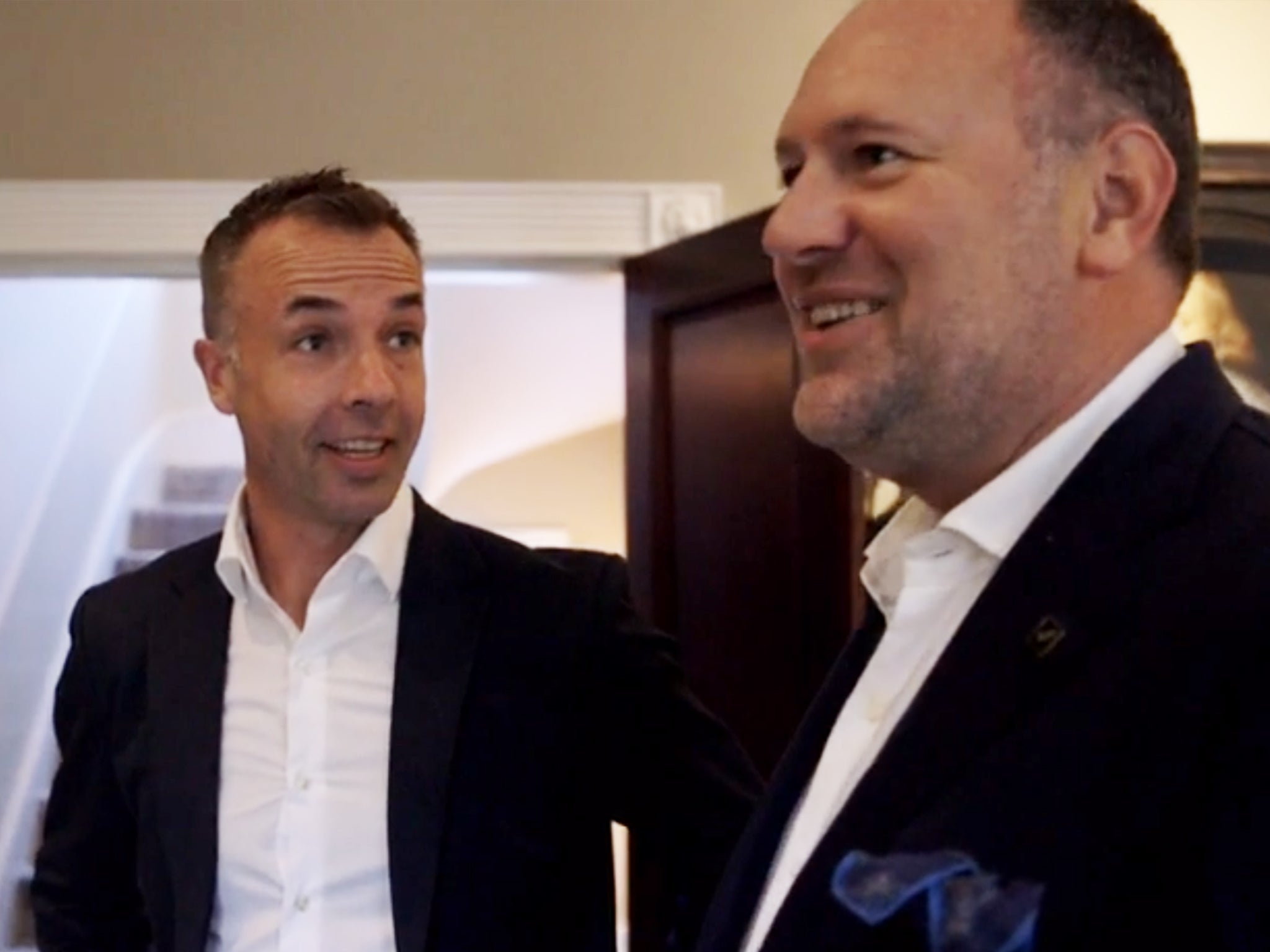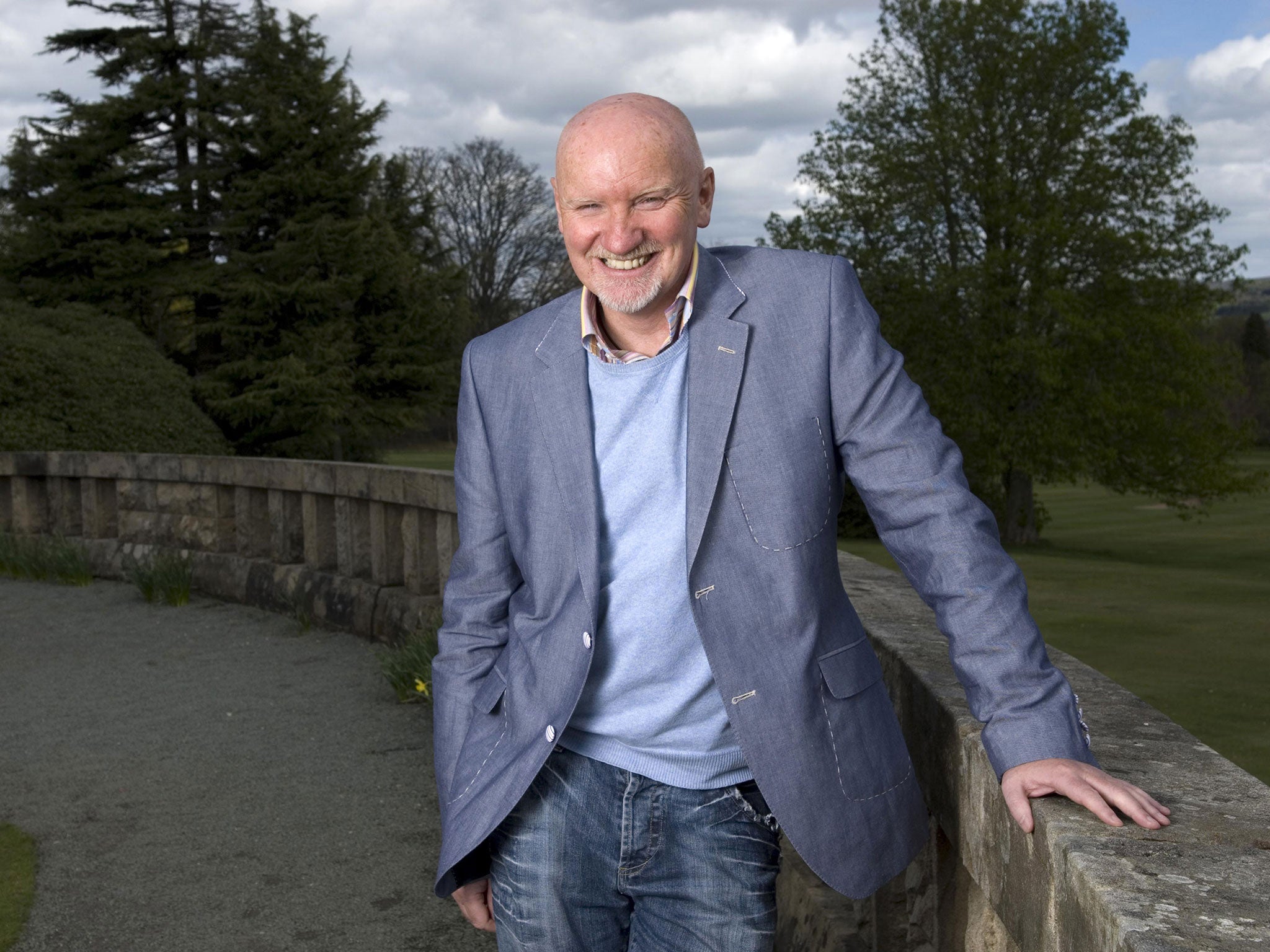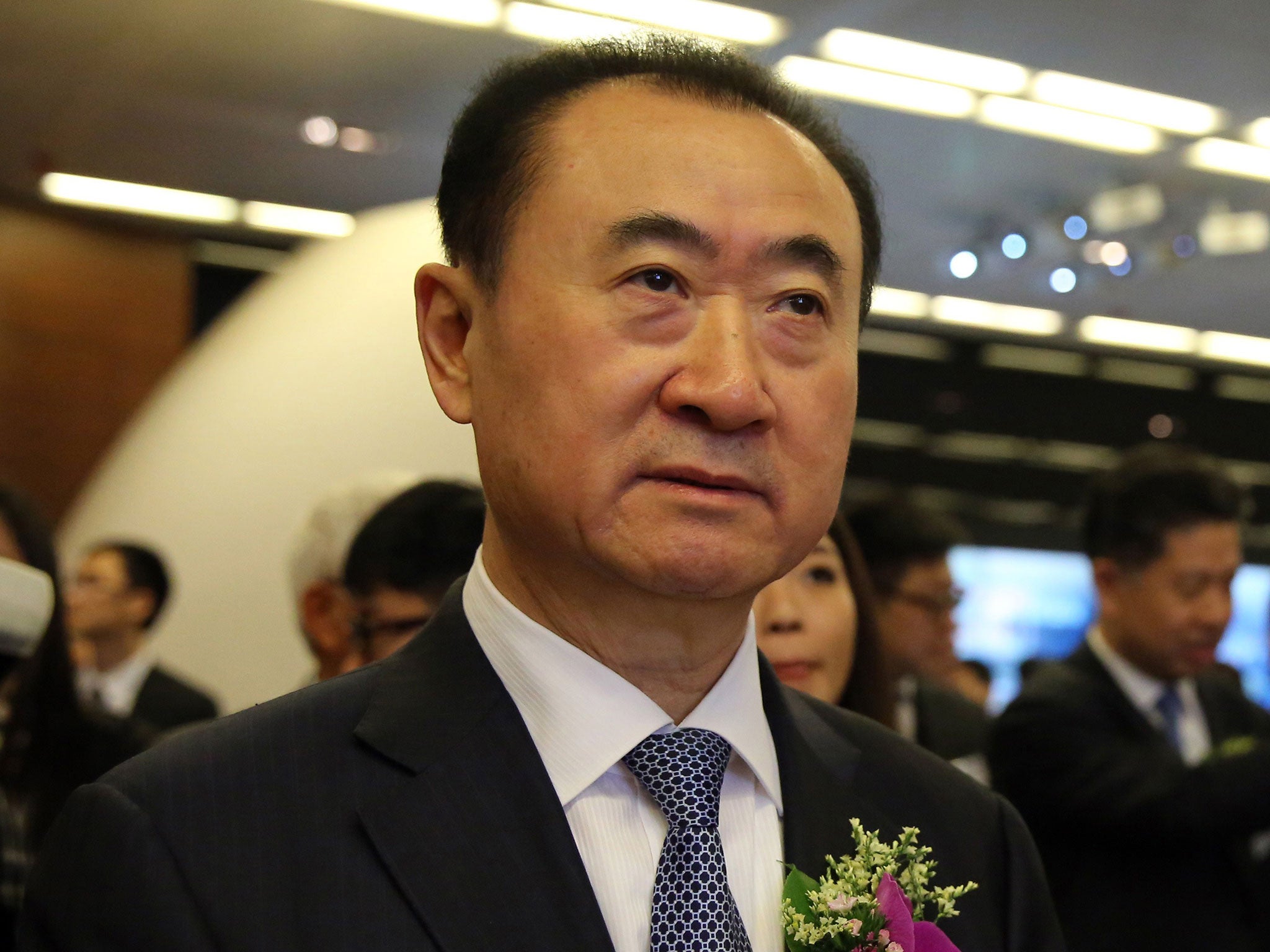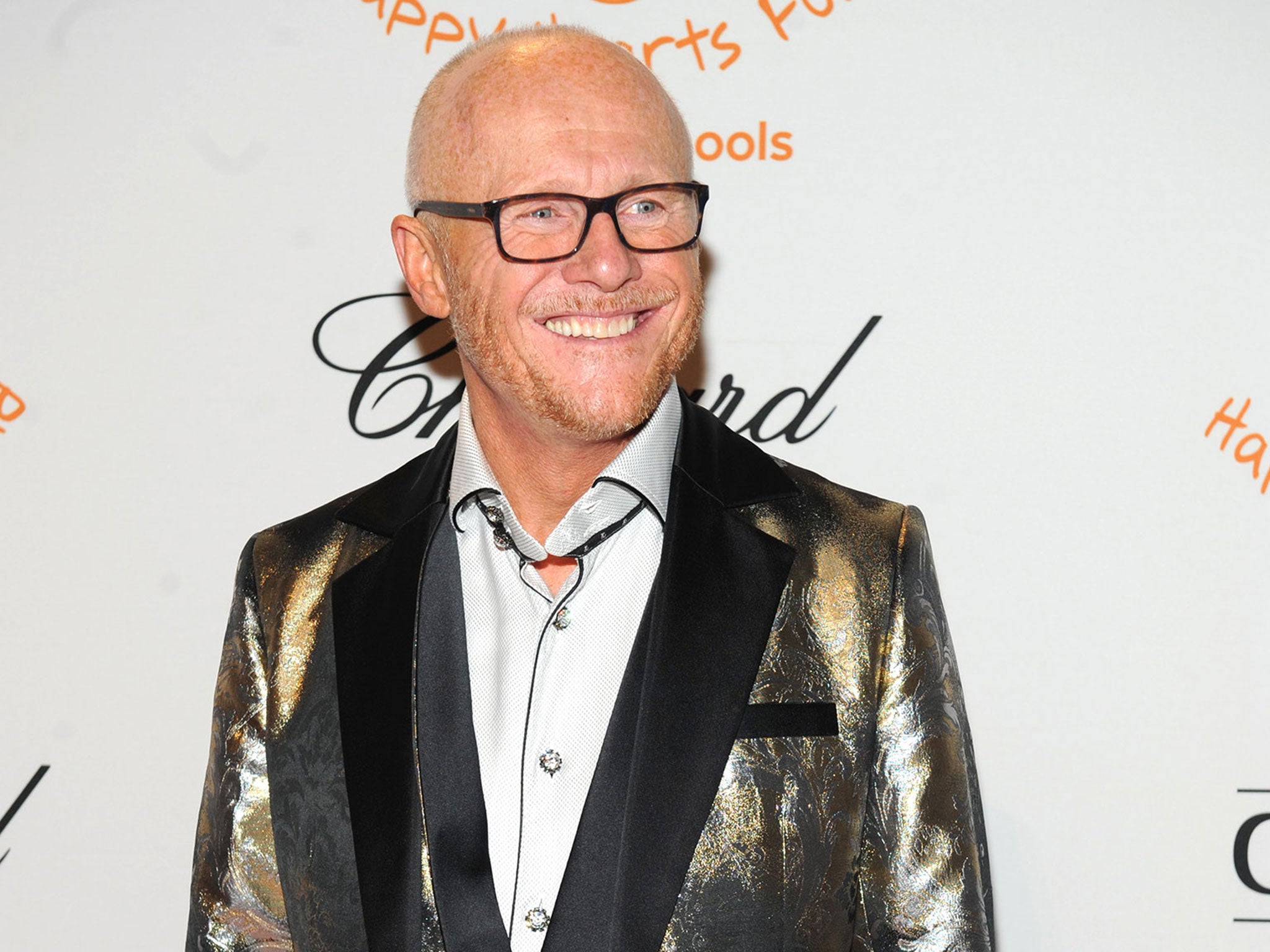What I learnt about inequality after spending time with some of the richest people in the world
Wealth has dehumanised them, and there's nothing they can do about it

Your support helps us to tell the story
From reproductive rights to climate change to Big Tech, The Independent is on the ground when the story is developing. Whether it's investigating the financials of Elon Musk's pro-Trump PAC or producing our latest documentary, 'The A Word', which shines a light on the American women fighting for reproductive rights, we know how important it is to parse out the facts from the messaging.
At such a critical moment in US history, we need reporters on the ground. Your donation allows us to keep sending journalists to speak to both sides of the story.
The Independent is trusted by Americans across the entire political spectrum. And unlike many other quality news outlets, we choose not to lock Americans out of our reporting and analysis with paywalls. We believe quality journalism should be available to everyone, paid for by those who can afford it.
Your support makes all the difference.So what are the super-rich: are they bastards? Are they, as Hemingway put it, just like us, but with "more money”? Are they going to save us? Destroy us? Are they corporate psychopaths who've channelled their murderous impulses into making money, not serial killing? Or are they lonely and needing love, but trapped in a gilded cage of Bentleys and Lear Jets?
No, none of the above. I spent 6 months with them for a show I made for the BBC, called The Super-Rich and Us. I travelled to various castles and penthouses all over the world. I was greeted by sportswear multi-millionaire Sir Tom Hunter in his vast manicured grounds with “Hello! My favourite champagne Socialist!” (a little more champagne and less socialist, thanks very much).
I went to The Dorchester to meet Wang Jianlin, China's richest man, who pretends he doesn't understand English when he's bored. He was off to see someone called Boris after me, who wants to flog him half of London, and then some bloke called David, who runs the country. That's what happens when you're worth a modest $21.4bn.
So what did I learn from spending so much time with the super-wealthy? They're fast becoming a breed apart. And this isn't a lazy use of the term "breed apart" - it's both biologically and psychologically accurate. It's their self-willed destiny.
The super-rich believe that they're Masters Of The Universe, and the facts seem to bear them out. They hold power in that quiet understated way Sun Tzu defined as “the one who doesn't speak in a room. He's the one who holds all the cards”.
This gives them something they can't help: an intolerance for weakness. Even the most self-avowed Bill Gatesian liberal and philanthropic billionaire, paying for libraries and vaccine programs in Africa, can't quite comprehend why everyone on Earth isn't as determined to be as successful as they are. If they're not - goddamn it, I'm going to show them how.

This go-getting, sink or swim mantra of the super-rich is accepted by the Government. It's even taught in schools. But not everyone can be an entrepreneur – it's the reason people across Europe have been marching. They're not just protesting against austerity, but also reaffirming their humanity. In Athens they chanted "we are human", as if the troika and super-rich actually needed reminding.
What began as a global tribe simply making money has transmuted into biological difference. The rich now live in their own Elysium-style biosphere. It's a floating bubble high above Earth, connecting London to New York to Shanghai to Dubai via a chrome Business Class tube in the sky.
Whether they're in their private jets, helicopters, or penthouse suites, they occupy a space that mere mortals like us can only squint at from street level. Their separation makes it easier for them to accept the inequality of which they're a part - and puts them literally out of reach.
In this biosphere, they eat better food, go to better schools, wear better clothes, take better medicine, and thus breed a cleaner, richer tribe. They even breathe cleaner air. Several billionaires have their own mobile air supplies, which are pumped into whatever home they've decided to stay at. If you have a property in Shanghai, for example, being super-wealthy allows you to avoid having the same smog-filled lungs as the rest of the city’s 14m inhabitants.
If you visit this Elysium, as I did, you'll realise that inequality is not about money, but an idea of wealth-engineered eugenics. In their minds, they are not only richer than the rest of us, but also “better”.

And the word “better” is important, because the fallacy of moral improvement that comes with money has been used to justify inequality. The rich sincerely believe it, and they want us to sincerely believe it too, and guess what? We do. If we don't achieve the unachievable, we've failed. It's a rigged game.
The rich aren't evil, though. They're avatars for inequality, but with a shred of humanity inside of them – a ghost in the machine – that wants to reconnect with the rest of society.
I asked multi-millionaire Tony Fernandes what he was doing after I interviewed him. “Making beans on toast for the kids”. He is so rich, he's come out the other side, and eschews the trappings of luxury for ersatz reality.
But then I spoke to the Phones 4 U billionaire, John Caudwell, who showed me his plans for a giant subterranean Bat Cave he wants to build — it was empty, apart from one tiny gold-plated figure at the centre. “That's me,” he said. And do you know what? I felt sorry for him. A bit.
No matter how hard they try, the super-rich live in a hermetically enclosed bubble. Seeing the way they lived made me think of an Ebola patient in a highly pampered quarantine, staring at the outside world. They feel like they should be part of it, but spend their lives unconvincingly parodying the things ordinary people do. Their wealth has made them suspicious and distant. It has dehumanised them, and there's nothing they can do about it.

That is their tragedy. But it's not quite on a par with the tragedy of a mum juggling eight jobs on zero hours contracts. So boo hoo, you might say.
We should pity their separation from the 99 per cent. But not too much - when the next crash happens, let's not use quantitative easing and the bail-out to super-charge inequality further. Pity democracy, pity people, but don't pity those with too much money.
Join our commenting forum
Join thought-provoking conversations, follow other Independent readers and see their replies
Comments